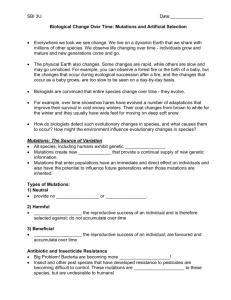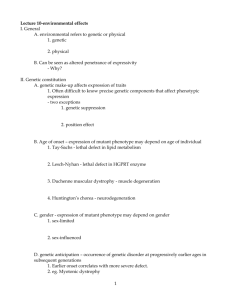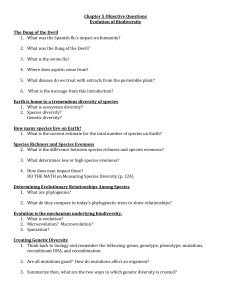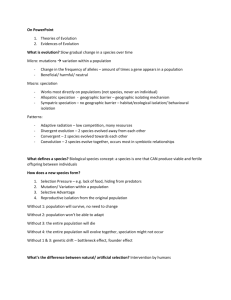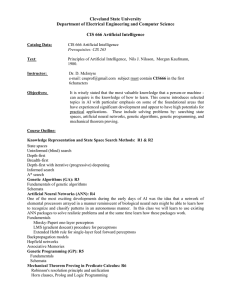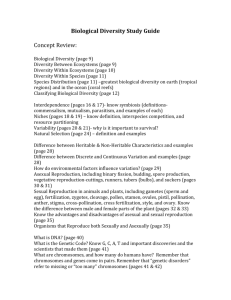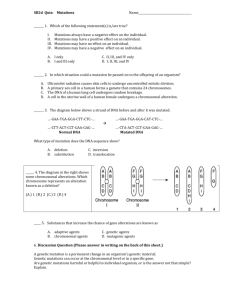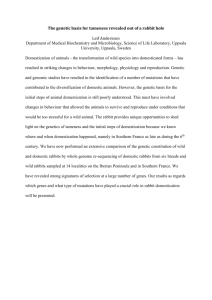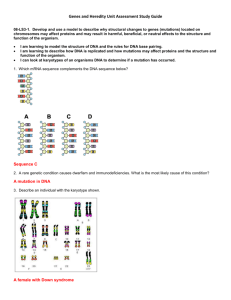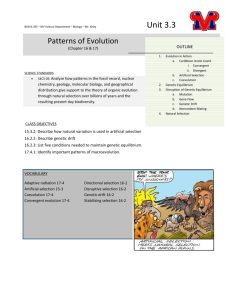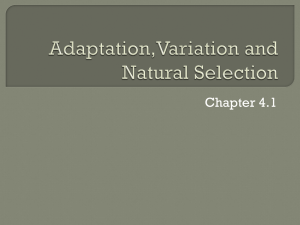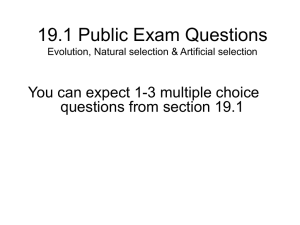Biological Change over Time
advertisement
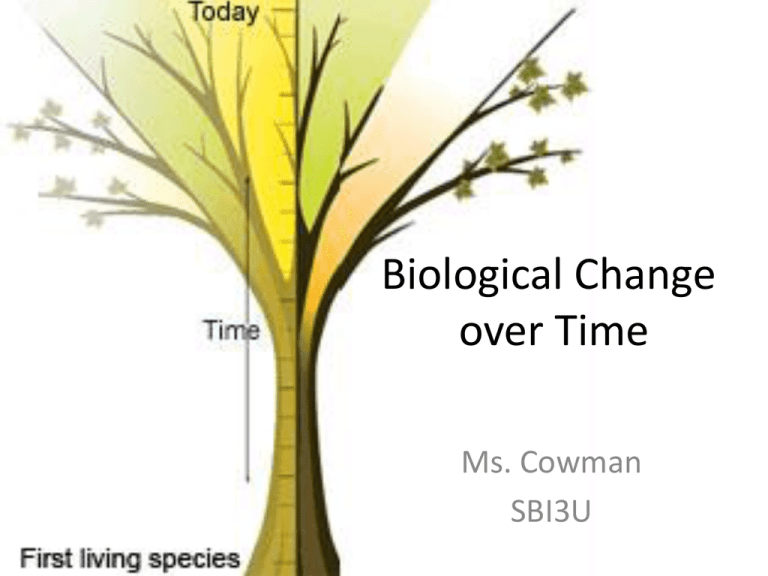
Biological Change over Time Ms. Cowman SBI3U Mutations: The Source of Genetic Variation • All species exhibit genetic variation • Mutations create new genes that provide a continual supply of new genetic information • Mutations may be: NEUTRAL- provide no benefit or harm to the individual HARMFUL- reduce the reproductive success of an organism, do no accumulate over time BENEFICIAL- produce a change in the individuals phenotype that gives the individual an advantage, accumulate over time Mutations can have significant consequences Bacteria have developed resistance to antibiotics are becoming more widespread as less-resistant strains are killed off. Viruses can mutate to become more virulent (harmful), which can increase its ability to spread. Selective Breeding: Artificial Selection of Traits • Domestication of Animals and Plants Provide humans with the majority of our food supply Formed the basis for the development of modern civilization • Domestication is the changing of members of a species to suit human needs through controlled captive breeding (Artificial Selection) Examples of Artificial Selection First species to be domesticated: Canis lupus, the wolf Wild Sea Cabbage (1000’s of years) 7 vegetables How does artificial selection work? • The breeder picks seeds from the plants that have the best flavour or largest fruit and sows them • The plants cross-pollinate each other producing more fruit with the desired trait Genetic Engineering • Transfer beneficial genes from an individual of one species to an individual of another species • If successful, genetically modified individual is mass produced Power of Artificial Selection • Production of individuals that exhibit traits that are far beyond the natural variability present in the original population • Can reduce genetic diversity within a population Breeder favours only certain traits in a population, then many alleles linked to other versions of a particular characteristic are reduced or eliminated Implications for Natural Populations What do we know about genetics? - All species exhibit genetic variation - Mutations produce heritable changes in individuals, and these changes may be beneficial, harmful, or neutral - Some species, such as bacteria and insects, can change over relatively short periods of time - Some domesticated species have changed dramatically under the influence of artificial selection
